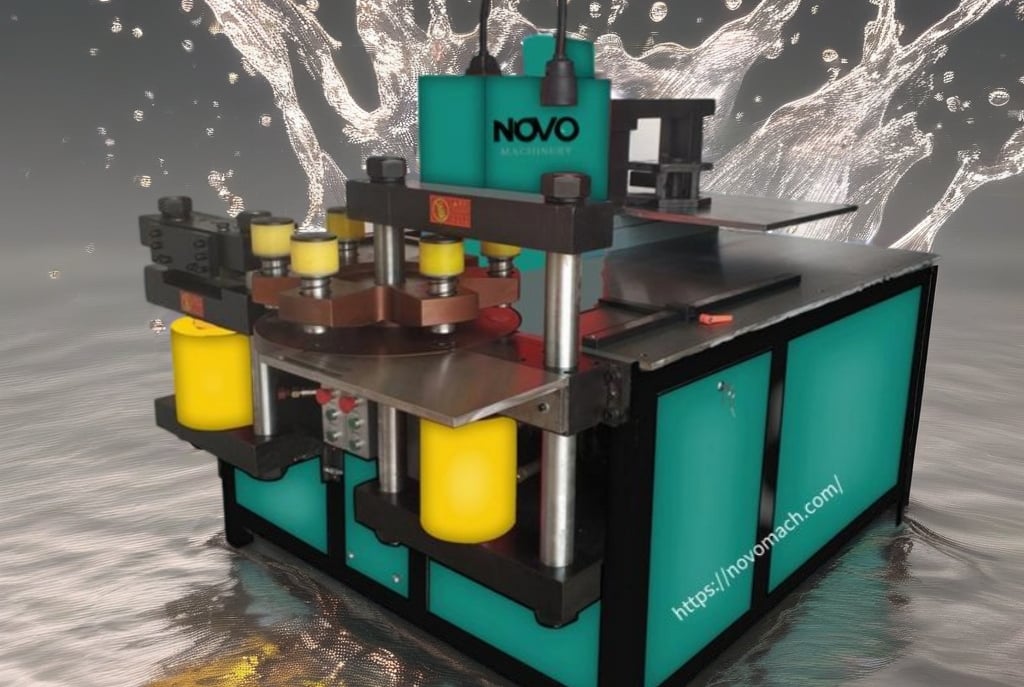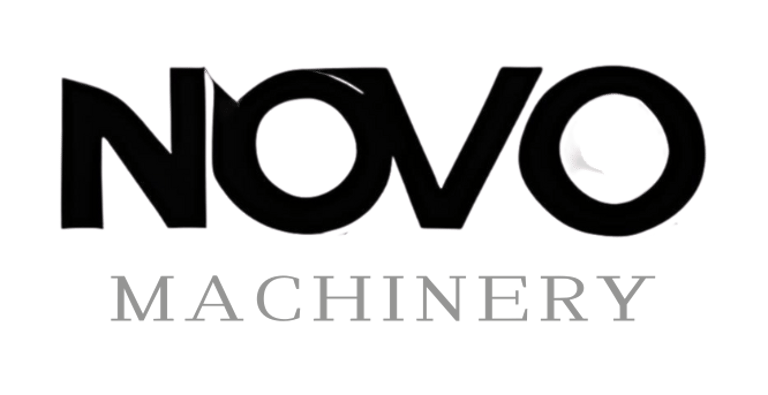Emerging Markets Capacity Upgrade: How Busbar Processing Machines Can Help Small Factories in the Middle East/Africa Undertake Government Infrastructure Orders
6/28/20255 min read


Understanding Busbar Processing Machines
Busbar processing machines are specialized tools designed primarily for the fabrication and processing of busbars, which are essential components in electrical distribution systems. A busbar is a conductive material usually made from copper or aluminum that serves as a central junction for electrical connections, facilitating the distribution of power in various applications, including industrial plants, commercial buildings, and transportation systems.
These machines come in various types, each tailored to specific processing needs. The most common types include busbar punching machines, bending machines, cutting machines, and soldering machines. Punching machines create holes in busbars for easy attachment to other electrical components; bending machines provide the necessary flexibility to shape the busbars to fit specific application requirements; and cutting machines ensure that the busbars are manufactured to precise lengths, which is crucial for optimal connectivity and performance. Soldering machines further enhance the durability and functionality of the assemblies created by allowing secure electrical connections.
Recognizing the critical role of busbars in infrastructure projects, many governments are increasing investments in electrical infrastructure development, particularly in emerging markets such as the Middle East and Africa. Smaller factories in these regions can greatly benefit from busbar processing machines, enabling them to bid for government contracts that require robust manufacturing capabilities. Recent advancements in technology have made these machines more compact and efficient, reducing the barriers to entry for smaller manufacturers. Innovations such as automation and user-friendly interfaces have enhanced operational efficiency while minimizing the learning curve.
Moreover, the improved accessibility of busbar processing machines positions small manufacturers to respond swiftly to rising demands in electrical infrastructure. As these factories adopt more sophisticated technologies, they enhance their competitiveness, enabling them to secure contracts that contribute to local development and global supply chains. By understanding how busbar processing machines operate and their significance in electrical distribution, factories in emerging markets can better navigate the complexities of government infrastructure orders.
The Role of Small Factories in Government Infrastructure Projects
In the Middle East and Africa, government infrastructure projects are increasingly pivotal in stimulating economic growth and development. These projects, which encompass a broad range of sectors including transportation, energy, and communications, require substantial investment and efficient execution. To meet the rising demand for infrastructure improvement, local manufacturing capabilities are paramount. This situation presents a significant opportunity for small factories, which are often more agile and responsive than larger industrial players.
Small factories contribute vital support in the manufacturing landscape by providing tailored solutions that meet specific governmental requirements. Their closer proximity to local markets enhances responsiveness, allowing them to adapt quickly to changing project specifications. Additionally, small factories can facilitate economic development within their communities by creating jobs and fostering entrepreneurial growth. As these factories engage in government infrastructure projects, they help promote industrial diversification and reduce reliance on imported materials, consequently strengthening national economies.
However, small factories also face substantial challenges that can impede their ability to fulfill government orders effectively. Many are hindered by limited financial and human resources, which restrict their capacity to invest in advanced manufacturing technology. Outdated equipment often curtails their production efficiency, making it difficult to compete with larger manufacturers that have access to state-of-the-art technology. Additionally, small factories may struggle with a lack of formal training and skills development among their workforce, resulting in reduced productivity and competitiveness.
To maximize their potential in government infrastructure projects, small factories in the Middle East and Africa must seek solutions that enhance their production capabilities. By addressing these challenges, they can play a more significant role in fulfilling government contracts while simultaneously contributing to local economic growth and development.
How Busbar Processing Machines Empower Small Factories
In recent years, busbar processing machines have become vital tools for small factories in the Middle East and Africa looking to fulfill government infrastructure contracts. These machines enhance productivity significantly, enabling smaller operations to compete effectively against larger manufacturers. With the integration of advanced technology, busbar processing machines streamline the production process, allowing factories to increase output while maintaining high-quality standards essential for securing government contracts.
Efficiency is paramount in the manufacturing sector, especially when dealing with time-sensitive government projects. Busbar processing machines offer automation features that reduce manual labor and minimize the risk of human error. As a result, small factories experience faster turnaround times, meeting strict deadlines and improving overall operational efficiency. Additionally, these machines are equipped to handle various specifications, facilitating compliance with the exact standards required by different contracts.
Another significant advantage of busbar processing machines is their flexibility. These devices can be customized to fit diverse production needs, allowing small factories to adapt quickly to varying requirements posed by government orders. For instance, factories can modify the design, size, and specifications of busbars to meet the demands of different projects without the need for extensive retooling or labor-intensive processes.
Consider the case of a small factory in South Africa that upgraded its operations by incorporating busbar processing machines. This investment not only improved the factory’s production capacity but also enhanced its reputation for meeting quality standards. Consequently, the factory secured large contracts to supply components for a national infrastructure project, demonstrating the transformative effect these machines can have on small businesses. Such case studies illustrate that with the right equipment, small factories are well-positioned to seize opportunities in the competitive landscape of government contracts, thereby driving growth and sustainability in emerging markets.
Future Outlook: Investment and Growth Opportunities
The integration of busbar processing machines into small factories represents a pivotal move toward enhancing operational efficiency and capacity in emerging markets, particularly in the Middle East and Africa. As governments in these regions increasingly invest in infrastructure projects, the demand for high-quality electrical components is anticipated to rise significantly. This presents a unique opportunity for small manufacturers to align their production capabilities with the evolving market needs, thus positioning themselves as key players in upcoming government contracts.
Investing in advanced busbar processing machines not only facilitates the production of components that meet stringent quality and efficiency standards but also opens pathways for small factories to engage in lucrative public-sector partnerships. These collaborations can be bolstered through government initiatives aimed at localizing manufacturing, thereby ensuring that a significant portion of infrastructure demand is met by domestic suppliers. Small factories that strategically invest in modern machinery, alongside gaining accreditation for quality standards, will likely be preferred candidates for government contracts.
Furthermore, financial and training resources should be prioritized by small manufacturers aiming to adopt such technologies. Access to funding can be sought through various channels, including government grants, private investors, and partnerships with larger firms. Additionally, investing in workforce development ensures that employees are equipped with the necessary skills to operate advanced machinery effectively, ultimately leading to greater productivity and innovation.
To maximize potential in this evolving landscape, small factories should consider forming alliances with other manufacturers and industry partners. Collaborative efforts can reduce operational costs, facilitate knowledge sharing, and enhance competitive edge in bidding for government contracts. As the infrastructure landscape evolves, so too should the strategies of small factories in order to seize investment and growth opportunities inherent in this transition.
Innovate
Leading manufacturer of busbar processing equipment solutions.
Contact
Support
+131 2713 4627
© 2025. All rights reserved.
